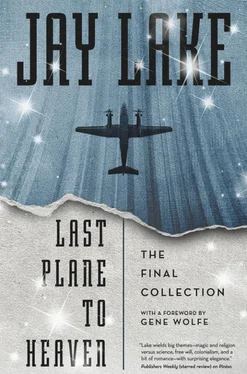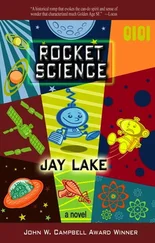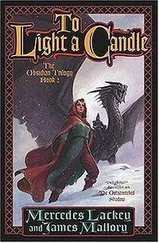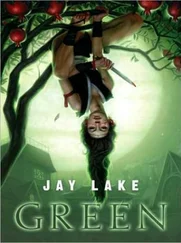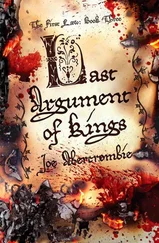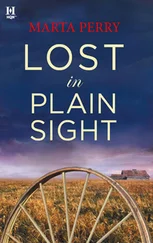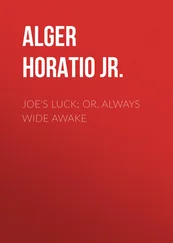I threw the door open in an outburst of showmanship to find a pair of tall leather boots in the hall, another cardstock note propped between them.
Elusive, once again.
* * *
Through the entire afternoon I scanned the sky for serpents. Sometimes I glimpsed the bladed and bloody future, another aspect of my life for which neither the civil authorities nor the medical establishment had any patience. The world to come leaves its tracks around us in the frost on hearses, railroad car graffiti, visible-but-secret patterns in park plantings and concert posters plastered to brick walls. One needs only attune oneself to read this.
I mostly keep my distance from these truths. They disrupt the flow of my life and introduce fears that can overwhelm. But the emergent structure of mysterious notes and visitations reminded me all too much of my prior visions.
So I watched, and waited, trying to catch sight of what might yet come.
Nothing emerged from the watercolor clouds but rain and more rain. No writhing tentacles, no bleary eye of God staring down in indifferent judgment. Haruspication is a lost art at the best of times, and my own small precognition has rarely served to provide more than trouble.
I was not sure this was trouble. Yet, something still moved.
* * *
“REED” was scheduled for “SUNDAY, 4:44 P.M.” I spent the day scrubbing down the apartment. I was out of lye, but was able to compensate with some additional HCl at 32 percent concentration. I wanted to be ready, and the cleansing always aided my thinking. The idea of installing small cameras in the hall seemed logical enough, but was beyond my means both fiscally and technically. I was reluctant to wait outside and watch. My usual horror of the filth of the world was very much at issue, but also an inner sense on my part that if I broke the pattern, so would my visitor.
So I scrubbed and thought, thought and scrubbed, and focused on what would come next. Perhaps I should throw open the door as soon as I heard footfalls on the stairs? Or wait for the creaking of the floorboard?
Except this had already assumed the aspects of ritual. Breaking a ritual was a fearful thing. I could not even bring myself to vary the order in which I filled my small basket at the grocery store every Sunday afternoon. How could I violate this implied trust?
In the end, I waited in the window, boots upon my clingwrap-coated feet, hat upon my latex-capped head. Just about 4:40 my visitor appeared, walking more slowly due to the crowding of the street. Visibly female now, her car coat flapped behind her, her bare head flashing with auburn curls. From my vantage, she appeared to be barefooted.
I waited until she passed out of my sight into my building, then leapt to my door, a scrubbed and polished fireplace poker in my hand. The usual noises proceeded in the usual order, until I heard my neighbor’s door creak open. Mrs. Willets, in 2B, across the hall.
She must be even now encountering my mysterious visitor at the head of the stairs! I heard the murmur of voices, but could not make out what was said, even as I strained. The tones seemed to be those of guarded familiarity, not challenge.
I realized then with sick horror that everyone in my building was in on the conspiracy. My visitor left her gifts before my door, then slipped silently into Mrs. Willets’s apartment to outwait me.
No one was to be trusted. I’d learned that lesson practically in my cradle. But I’d let uncouth familiarity dull my wariness of those on whom most suspicion should naturally fall—the people around me every day. They were most in a position to deduce the patterns of my life, find my secret vulnerabilities, coöperate in a clandestine manner with the police and the doctors.
Angry now, I hurled open my door, poker at the ready.
Nothing was before me but a folded leather car coat and a piece of cardstock.
Frustrated, I stalked up and down the hall twice, but there was nowhere to hide and no one hiding there. Mrs. Willets was gone. The visitor was gone.
I used the tip of the poker to pick up the car coat—it took several tries—then kicked the cardstock through my open door. I retreated, shutting, chaining, and double-locking myself into the now-dubious safety of my apartment.
I did not want to have to move.
When I dumped the car coat onto the floor, I saw that the tip of the poker was mucky with some foulness. On close inspection, it was a mix of blood and hair. I whirled around, weapon at the ready, to see a naked woman slumped in my flowered wingback chair. Her neck was bent at an odd angle, while blood caked the right side of her face. Oddly, she wore a latex skullcap just like mine, and latex gloves no different from my own. Her features were as familiar as my mirror.
No, I thought. Not again.
I hurled the incriminating poker away from me. It clattered against the steam heater, then wound up beneath, leaving a deep maroon smear on my hardwood floor. Heedless, I picked up the cardstock and looked at it.
“URDER,” it read. “TOO LATE NOW.”
I understood that message well enough. It could be translated as, “We are coming, beware.”
Stepping to the window, I checked the sky for signs. Serpents flew from the house of the sun. The first of many sirens wailed in the distance.
Bare-headed and bare-handed, I shrugged myself into my car coat, donned my leather hat, pocketed my stack of cut-up cardboard and my father’s fountain pen, and stepped out into the glittering barbs of the gimlet-eyed future.
The filth of my life I left behind me.
Such Bright and Risen Madness in Our Names
And this is me directly writing in Lovecraft’s world. Which is great good fun, if you’re feeling creepy enough.
“Long have we dwelt in wonder and glory.”
The passwords are ashes in my mouth. The last of the First Resistance was crushed eight years ago, when shoggoths swarmed the final submarine base hidden in the San Juan Islands at the mouth of Puget Sound, but the Second Resistance struggles onward, ever guttering like a starveling candle flame.
My contact nods, his—or her? Does it matter anymore?—head bobbing with the slow certainty of a collapsing corpse. The Innsmouth syndrome transforms so many of us, who were once human. The voice croaking a response bespeaks more of the benthic depths than any child of woman born. “Such bright and risen days these are.”
And simply as that, I am admitted to the tiled lodge here at the mouth of the Columbia, amid the ruins of Astoria. We meet with our rituals and our secret rooms in imitation of Dagon and the Silver Twilight, because their rites worked .
Oh, we were warned. Lovecraft, Howard, Smith—they had a glimpse of the truth, which they disguised as fiction. Who believed? People actually made up games about the Old Ones. As if the mile-long shattered corpse still rotting across the Seattle waterfront nine years after the U.S. Air Force’s last bombing run could be made into a joke, or a rattle of dice.
All that saves us now is inattention. Cthulhu, Yog-Sothoth, all are like children in their godhood. Dead, they lay so long dreaming that they lost the habit of attending to the world, except through such rites as move them.
The First Resistance fought the elder gods themselves. But how does a B-2 fly against something that can warp the very fabric of the stars with the power of its mind? The Earth’s new masters did not need their priests to awaken them to those dangers, not after the Dunedin and Papeete nuclear strikes.
The Second Resistance struggles against the priests instead. Dread Cthulhu could snuff my life with the merest of thoughts, but he will no more bother to do so than I will snuff the life of a single amoeba deep within my gut. Traveling across 600 million years of time and space, then slumbering aeons beneath the waves in lost R’lyeh, does not equip one for such minutiae. His priests are the immune system, seeking to eradicate the last, hopeless glimmerings of human liberty and free spirit.
Читать дальше
